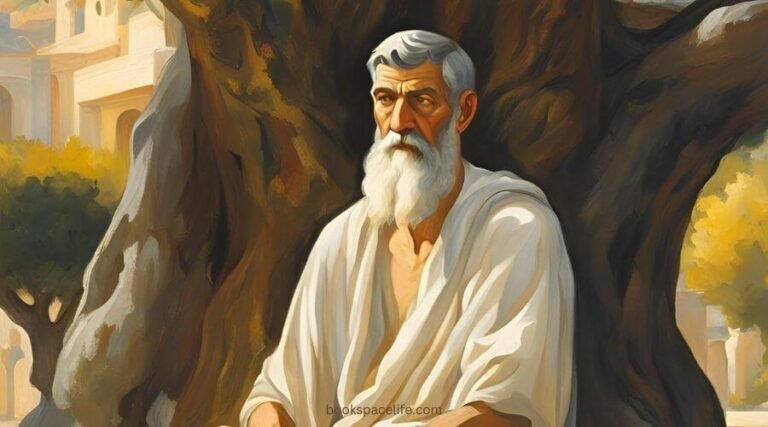
Epicurus (341–270 BCE)
Epicurus taught that happiness arises from simple pleasures, friendship, and freedom from fear. His works, like Letter to Menoeceus, emphasize atomism, hedonism, and achieving tranquility through rational living.

Epicurus taught that happiness arises from simple pleasures, friendship, and freedom from fear. His works, like Letter to Menoeceus, emphasize atomism, hedonism, and achieving tranquility through rational living.

Aristotle, a student of Plato, emphasized empirical observation and logic. His works, including Nicomachean Ethics and Metaphysics, explore virtue, causality, and the nature of being, profoundly shaping Western philosophy and science.
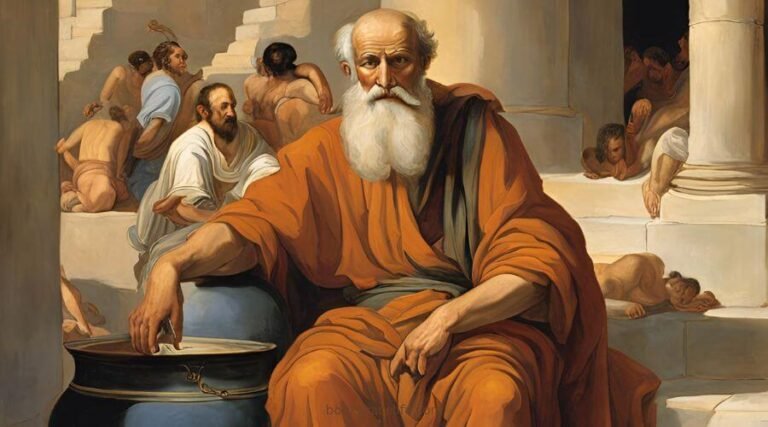
Diogenes of Sinope, a Cynic philosopher, rejected social conventions and materialism, advocating self-sufficiency and virtue. Known for his ascetic lifestyle, his ideas, preserved through anecdotes, emphasize living in accordance with nature.
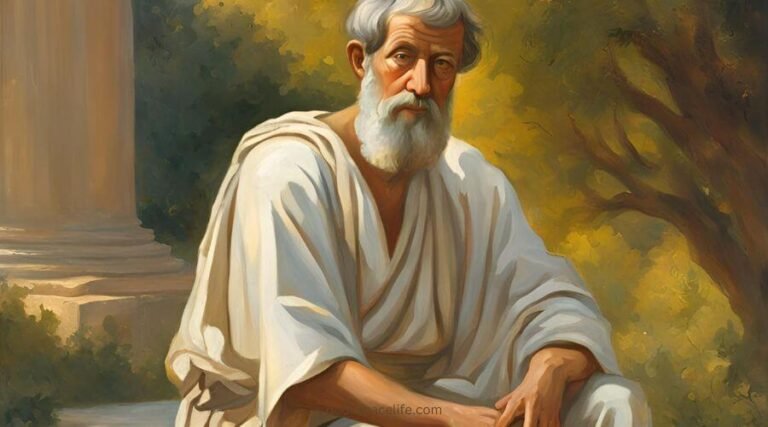
Plato, a student of Socrates, founded the Academy and developed idealism, asserting that reality consists of eternal Forms. His dialogues, including The Republic and The Symposium, explore justice, knowledge, and the soul.
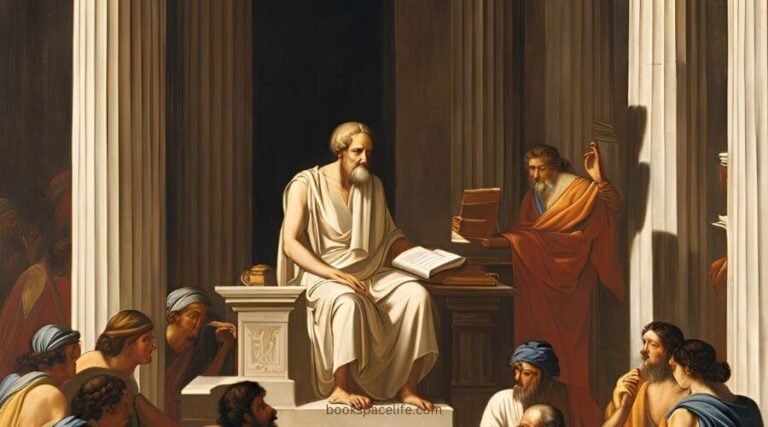
Euclid of Megara, a student of Socrates, merged Eleatic and Socratic thought, emphasizing the unity of goodness. His lost works influenced Stoicism, advocating that true knowledge stems from reason and virtue.

Democritus, the "father of atomism," proposed that reality consists of indivisible atoms moving in a void. His works, largely lost, influenced materialism and ethics, emphasizing cheerfulness (eudaimonia) as life’s goal.
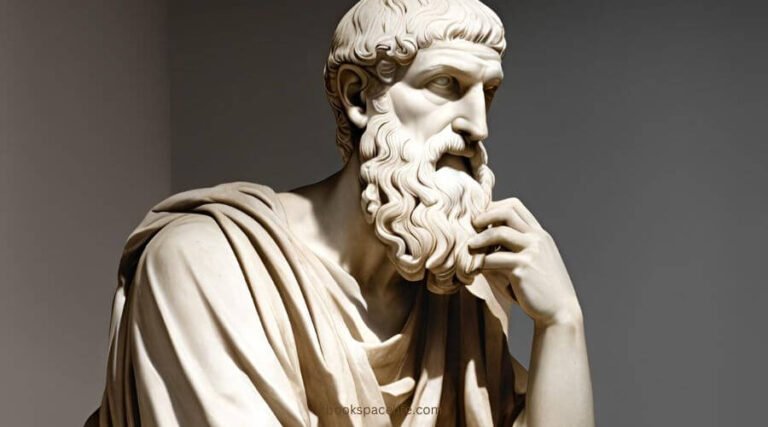
Hippias of Elis, a Sophist, promoted practical knowledge and intellectual versatility. Known for his memory and rhetoric, he appears in Plato’s Hippias Major and Hippias Minor, discussing truth, beauty, and virtue.

Socrates, a foundational Western philosopher, emphasized ethics, self-examination, and the Socratic method. Rejecting written works, his ideas survive through Plato’s dialogues, questioning virtue, knowledge, and the examined life’s importance.

Thales of Miletus, a pre-Socratic philosopher, is considered the first Western philosopher. He proposed water as the universe’s fundamental substance and pioneered scientific inquiry.
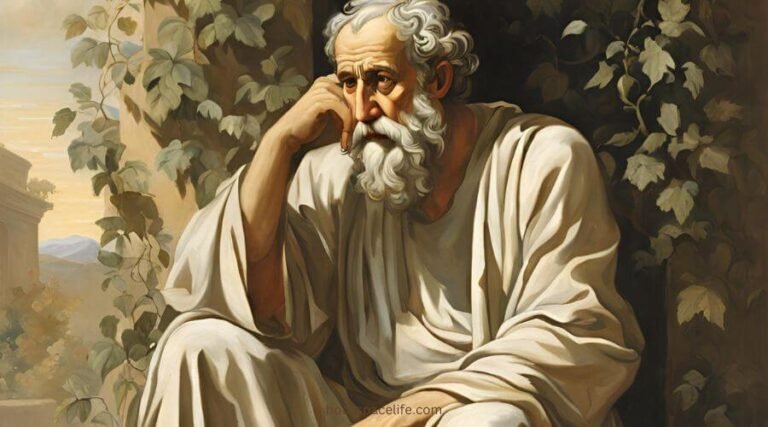
Gorgias of Leontini, a Sophist, argued that nothing exists, or if it does, it’s unknowable. His work, On Non-Existence, showcases his radical skepticism and rhetorical mastery, emphasizing persuasion over absolute truth.
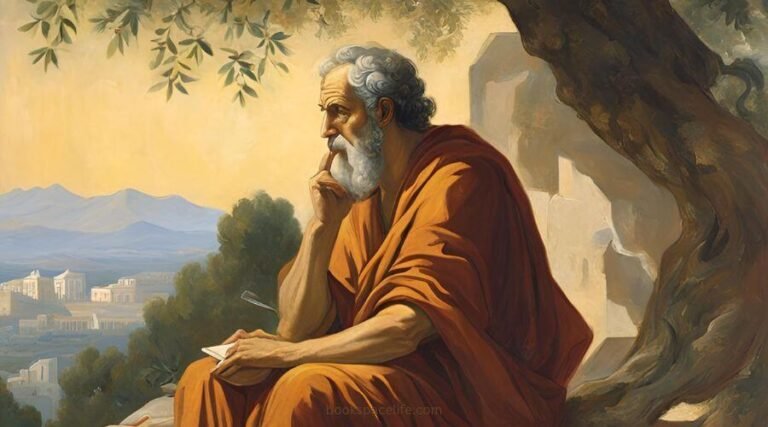
Zeno of Elea, a disciple of Parmenides, is famous for his paradoxes, which challenge motion and plurality. His arguments, preserved in Aristotle’s works, defend monism by revealing contradictions in sensory-based reasoning.
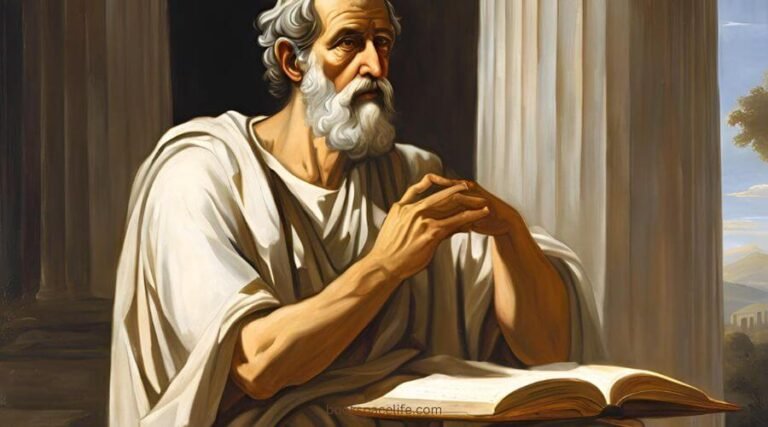
Protagoras, a Sophist, claimed “Man is the measure of all things,” emphasizing relativism and subjective truth. His lost works, including Truth and On the Gods, explored ethics, rhetoric, and human perception.